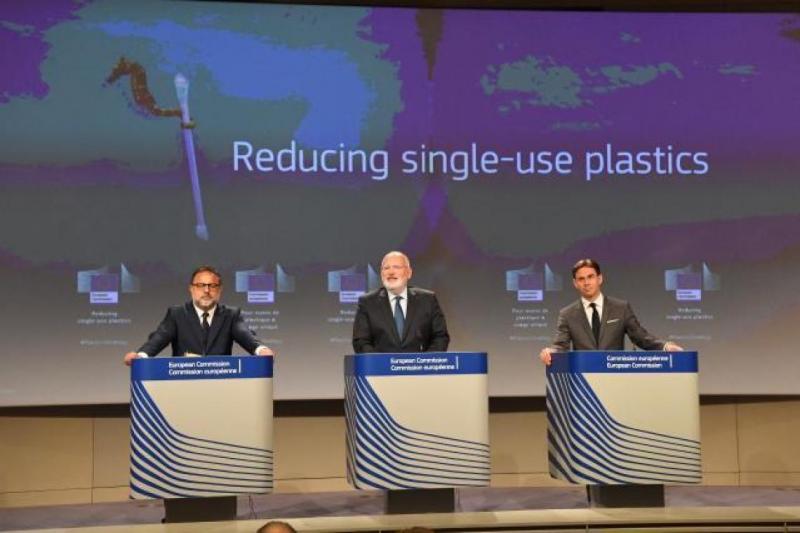
Single-use plastics
New EU rules to reduce marine litter
With the amount of harmful plastic litter in oceans and seas growing ever greater, the European Commission proposed today new EU-wide rules to target the 10 single-use plastic products most often found on Europe's beaches and seas, as well as lost and abandoned fishing gear.
Together these constitute 70% of all marine litter items. The new rules are proportionate and tailored to get the best results. This means different measures will be applied to different products. Where alternatives are readily available and affordable, single-use plastic products will be banned from the market. For products without straight-forward alternatives, the focus is on limiting their use through a national reduction in consumption; design and labelling requirements and waste management/clean-up obligations for producers. Together, the new rules will put Europe ahead of the curve on an issue with global implications.
Concretely, the new rules will introduce:
- Plastic ban in certain products: Where alternatives are readily available and affordable, single-use plastic products will be banned from the market. The ban will apply to plastic cotton buds, cutlery, plates, straws, drink stirrers and sticks for balloons which will all have to be made exclusively from more sustainable materials instead. Single-use drinks containers made with plastic will only be allowed on the market if their caps and lids remain attached;
- Consumption reduction targets: Member States will have to reduce the use of plastic food containers and drinks cups. They can do so by setting national reduction targets, making alternative products available at the point of sale, or ensuring that single-use plastic products cannot be provided free of charge;
- Obligations for producers: Producers will help cover the costs of waste management and clean-up, as well as awareness raising measures for food containers, packets and wrappers (such as for crisps and sweets), drinks containers and cups, tobacco products with filters (such as cigarette butts), wet wipes, balloons, and lightweight plastic bags. The industry will also be given incentives to develop less polluting alternatives for these products;
- Collection targets: Member States will be obliged to collect 90% of single-use plastic drinks bottles by 2025, for example through deposit refund schemes;
- Labelling Requirements: Certain products will require a clear and standardised labelling which indicates how waste should be disposed, the negative environmental impact of the product, and the presence of plastics in the products. This will apply to sanitary towels, wet wipes and balloons;
- Awareness-raising measures: Member States will be obliged to raise consumers' awareness about the negative impact of littering of single-use plastics and fishing gear as well as about the available re-use systems and waste management options for all these products.
For fishing gear, which accounts for 27% of all beach litter, the Commission aims to complete the existing policy framework with producer responsibility schemes for fishing gear containing plastic. Producers of plastic fishing gear will be required to cover the costs of waste collection from port reception facilities and its transport and treatment. They will also cover the costs of awareness-raising measures. Details on the new rules for fishing gear are available here.
The Commission's proposals will now go to the European Parliament and Council for adoption. The Commission urges the other institutions to treat this as a priority file, and to deliver tangible results for Europeans before the elections in May 2019.

